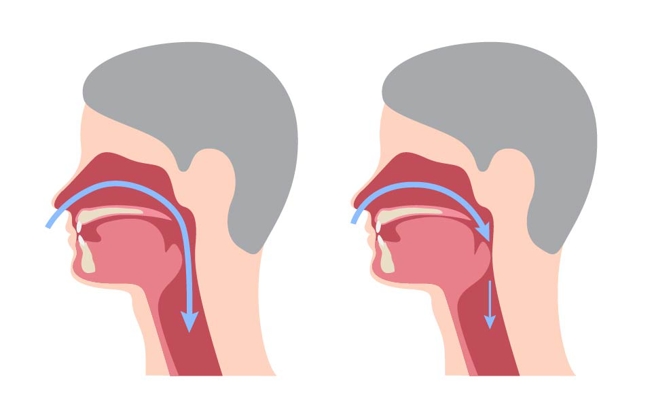Tips for Supporting Men’s Health
- Category: Cancer, Diabetes Education, Education, Heart Health, Men's Health, Senior Health
- Posted On:

How Men Can Take Better Care of Their Health
As we get older, it's natural to expect our bodies to change. While many health concerns affect everyone, there are certain health issues that affect men specifically. The experts at Parrish Healthcare are here to share some tips and tricks to help men take care of their whole health for years to come.
Top Men’s Health Concerns
Heart Disease
Heart disease is the leading cause of death for men in the United States, claiming 25% of male deaths each year. Because heart disease rarely shows warning signs before experiencing a cardiac event, it is important to be proactive about promoting heart health.
Some simple lifestyle changes men can make to ward off the dangers of heart disease include:
- Paying attention to their blood pressure readings.
- Keeping cholesterol levels under control.
- Maintain a healthy weight.
- Eat a nutrient-dense diet.
- Exercise regularly.
- Limit alcohol consumption.
- Avoid smoking and secondhand smoke.
- Manage stress levels.
- Get good quality rest each night.
Type 2 Diabetes
Because men tend to carry excess weight in their midsections, type 2 diabetes is another health concern for men. Because men tend to put off seeing a professional when it comes to health concerns, men often go undiagnosed and untreated. When type 2 diabetes goes unaddressed, it can cause:
- Erectile dysfunction (ED).
- Overactive bladder.
- Male incontinence.
- Recurring urinary tract infections (UTIs).
- Retrograde ejaculation.
Some ways to prevent this chronic health condition include:
- Lose and maintain a healthy weight.
- Exercise regularly.
- Cut trans fats, salt, and added sugar from your diet.
Certain Cancers
Although cancer can affect anyone, men are at a higher risk for developing certain types of cancer, including:
- Prostate cancer
- Colorectal cancer
- Lung cancer
- Skin cancer
One of the best ways to look out for these chronic health conditions is to have routine screenings and stay up-to-date on wellness exams.
Get Vaccinated
When it comes to protecting yourself and others from certain diseases, it is imperative to stay up-to-date on your immunizations. In fact vaccines help to prevent 2.5 million deaths from preventable disease every year. Unfortunately, many men tend to skip out on their wellness exams and their shots.
Routine Vaccines
While most vaccines only require one shot or several boosters, certain diseases require routine vaccinations to maintain your immunity. Every man should be getting:
- The seasonal flu vaccine at least once annually.
- A tetanus shot every 10 years.
Vaccines for Young Men
When it comes to protecting yourself and others from certain diseases, it is imperative to stay up-to-date on your immunizations. In fact, vaccines help to prevent 2.5 million deaths from preventable diseases every year. Unfortunately, many men tend to skip out on their wellness exams and their shots.
Vaccines for Men Over 50
After hitting the age of 50, the following vaccines can help protect you from becoming seriously ill:
- Shingles vaccine.
- Pneumococcal polysaccharide vaccine.
- Pneumococcal conjugate vaccine.
If you're unsure if you're up-to-date on your immunizations, be sure to speak with your primary care doctor.
Supporting Your Orthopedic Health
As you get older, it’s normal for arthritis and osteoporosis to affect your bone and joint health. However, rather than accepting them as a part of the aging process, you can keep these aches and pains at bay with a few healthy lifestyle changes.
Lead an Active Lifestyle
The best way that you can support your orthopedic health is to lead an active lifestyle. It helps you to build up muscle strength, prevents bone loss, and helps you to maintain independence as you get older.
Try incorporating the following types of exercise into your fitness routine:
- High-impact weight-bearing exercises
- Low-impact weight-bearing exercises
- Muscle-strengthening exercises
Pay Attention to Your Posture
While it’s normal to let your posture go every now and then, constantly having your spine out of its natural alignment can lead to unnecessary aches and pains over time. Keeping your spine in proper alignment helps to distribute your body weight evenly, preventing added pressure on your weight-bearing joints.
Some ways you can improve your posture include:
- Getting up to stretch throughout your day.
- Adjust your sitting position while working.
- Keep your hips in a neutral position.
- Stack your head, shoulders, and hips.
- Don’t cross your legs when sitting.
- Try to keep your shoulders down and back.
Eat a Diet Rich in Vitamin D and Calcium
Calcium
Your parents probably told you as you grew up that drinking milk helps to support healthy and strong bones. But did you know that getting enough calcium in your diet also helps to support healthy muscle movement?
Some great sources of calcium in your diet include:
- Milks
- Cheeses
- Soybeans
- Sardines
- Spinach
- Kale
Vitamin D
Vitamin D is also a key player when it comes to supporting your musculoskeletal health because it helps your body to absorb calcium. Foods that are high in vitamin D include:
Salmon
- Liver
- Egg yolks
- Herring
- Sardines
- Mackerel
If you have additional questions about how you can support your health and wellness, be sure to reach out to your doctor.
Primary Care in Titusville
When it comes to supporting your health, it is important to find a family care doctor you can trust. The family doctors at Parrish Medical Group Family Medicine treat patients throughout all stages of your life, providing you with the insight, resources, and preventative care you need to live happily and healthily.
Whether you’re in need of a regular check-up or you have a health concern, contact Parrish Medical Group Family Medicine at 321-268-611651 to schedule your next visit.



